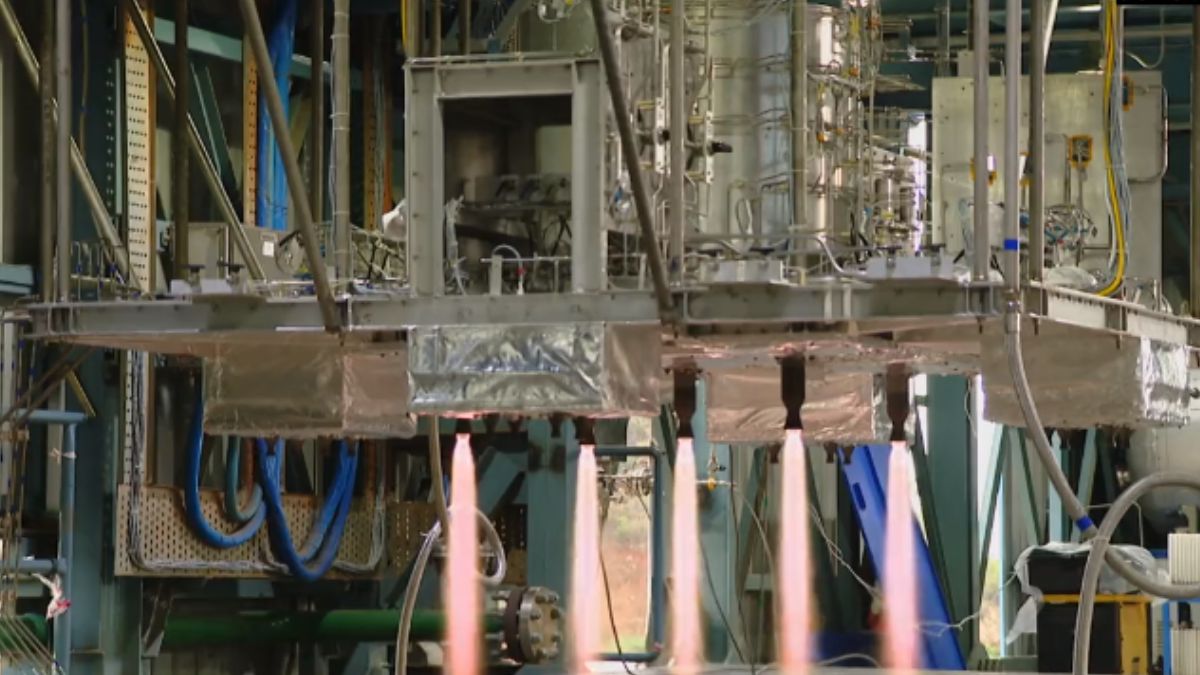ISRO successfully tested Gaganyaan Human Spaceflight Mission on 19th July at ISRO Propulsion Complex (IPRC) at Mahendragiri in Tamil Nadu.
Whats’s in News?
The Indian Space Research Organization (ISRO) successfully tested Gaganyaan Human Spaceflight Mission on 19th July at ISRO Propulsion Complex (IPRC) at Mahendragiri in Tamil Nadu.
It involves sending a crew of three members to a 400 km orbit for a three-day mission and bringing them back safely to Earth, with a planned landing in Indian Sea Waters.
Gaganyaan Human Spacecraft Mission:
Gaganyaan Human Spaceflight Mission has been successfully tested by ISRO on 19th July. It send a crew of three members to a 400 km orbit for a three-day mission and bringing them back safely to Earth with a planned landing in Indian Sea Waters.
Gaganyaan Human Spacecraft Mission involved five liquid apogee motor (LAM) engines with a thrust of 440 Newton and 16 reaction control system (RCS) thrusters with a thrust of 100 N. The Gaganyaan project aims to demonstrate India’s capability for human spaceflight.
Service module of Gaganyaan:
The Service Module of Gaganyaan incorporates a regulated bi-propellant based propulsion system, fulfilling various critical functions such as orbit injection, circularisation, on-orbit control, de-boost manoeuvring and SM-based abort procedures during the ascent phase.
During the mission’s ascending phase, the 440 N thrust LAM engine provide the primary propulsive force, while the RCS thrusters ensure precise attitude correction.
Recent Hot Tests:
The recent hot tests of the System Demonstration Model simulated the fluid circuit of the Service Module Propulsion System, including the propellant tank feed system, helium pressurisation system, flight-qualified thrusters and control components. According to ISRO, the first hot test of the Phase-2 test series successfully demonstrated the integrated performance of the Gaganyaan SMPS. The test lasted for 250 seconds and involved continuous firing of LAM engines and RCS thrusters. The SMPS has advanced in demonstrating its integrated performance in the full configuration with the successful completion of this hot test.
Previous Hot Tests:
As part of the Phase-1 test series, ISRO conducted five hot tests which accumulated a total duration of 2,750 seconds. This earlier phase involved five 440 N engines of LAM and eight 100 N RCS thrusters. More Sci-Tech News Here




 Iran’s Supreme Leader Ayatollah Ali Kham...
Iran’s Supreme Leader Ayatollah Ali Kham...
 Which Country Officially Uses Two Differ...
Which Country Officially Uses Two Differ...
 Historic Glory! Jammu & Kashmir Win ...
Historic Glory! Jammu & Kashmir Win ...








